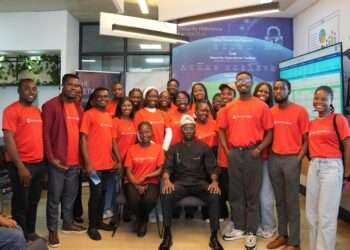As Nigeria’s startup ecosystem continues to attract funding and global attention, one problem remains constant: the tech talent gap.
While startups scale their products and raise venture capital, many struggle to find job-ready developers, data scientists, and cybersecurity professionals to sustain that growth.
Launched in 2023 as the capacity development arm of Heirs Technologies, i-Academy is designed according to the official page, to produce work-ready professionals across core areas like software engineering, cybersecurity, data analytics, and cloud computing.
“At Heirs Technologies, we understand that human capital is the bedrock of digital transformation,” said Obong Idiong, CEO of Heirs Technologies. “i-Academy is how we’re investing in future-proof skills to support Nigeria’s—and Africa’s—digital future.”
The i-Academy program spans several months of intensive, project-based learning. Students work on real problem statements drawn from sectors like fintech, energy, and health tech. Beyond technical depth, the curriculum emphasizes soft skills such as communication, teamwork, and agile thinking, which hiring managers often cite as lacking in junior developers.
Unlike many bootcamps or certification programs, many experts confirmed that i-Academy works closely with employers and stakeholders to ensure curriculum relevance.
In its inaugural cohorts, participants were exposed to tools and frameworks actively used in Nigerian startups—from React and Node.js to Power BI and AWS—along with principles of UI/UX, DevOps, and cybersecurity hygiene.
Graduates of the academy have gone on to work with Nigerian fintech startups, telecoms, and global consulting firms, some of which are now return partners seeking new talent from subsequent cohorts.
Africa’s digital economy is expected to grow by over $300 billion by 2025, according to the IFC and Google. Y
et, the continent faces a growing mismatch between the demand for tech workers and the available workforce. Nigeria alone is estimated to need over 500,000 skilled IT professionals to meet local and regional demand over the next few years.
The academy according to its missions statement, is also exploring online expansion models to reach more learners, particularly those outside major urban centers, where tech training remains inaccessible. New tracks in AI, cloud security, and DevOps are expected by Q1 2026, as Heirs responds to shifting market needs.
TALKING POINTS
Bootcamps and talent accelerators are great—but they’re not magic bullets. There’s a dangerous narrative emerging that if we just pump out thousands of bootcamp graduates, Africa’s digital economy will thrive.
Reality check: coding bootcamps can’t fix structural issues like underfunded universities, erratic power supply, or the brain drain that keeps exporting Africa’s best talent to Europe and North America.
i-Academy’s hands-on model is a massive step forward—but without broader systemic reforms, it’s like pouring water into a bucket full of holes.
Africa’s tech talent pipeline is still a class issue. Let’s talk equity. These programs, no matter how well-intentioned, often reach urban, educated, and relatively privileged youth. Rural communities and low-income families remain shut out of these opportunities.
Until i-Academy and others figure out how to democratize access through online learning, subsidies, or regional hubs the talent gap will persist along class and geographic lines.
It’s great that Heirs Technologies is planning online expansion. But how many kids in Maiduguri or rural Kajiado County have reliable internet or laptops to join Zoom bootcamps?

